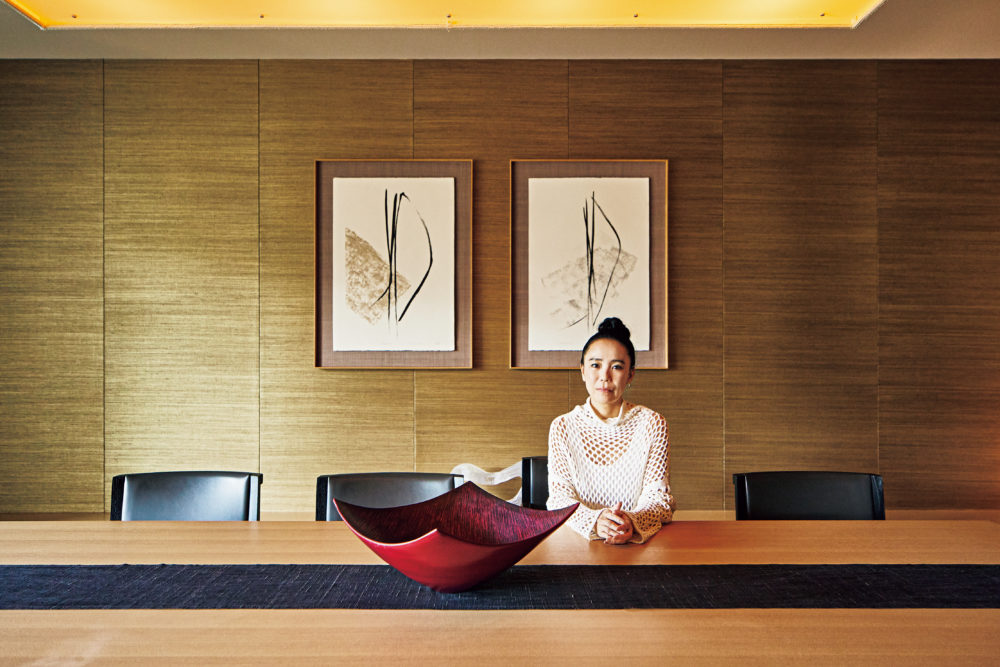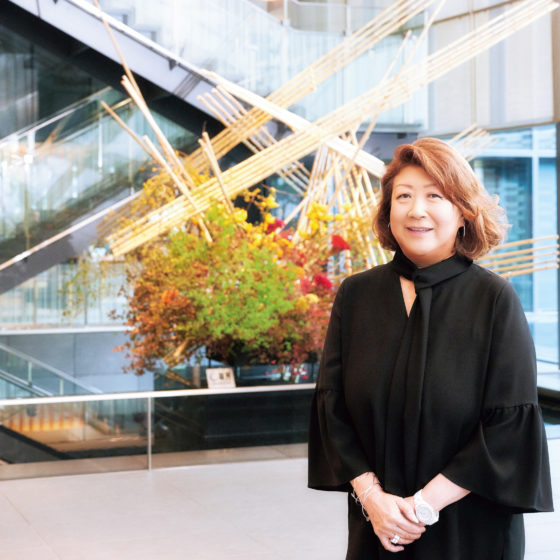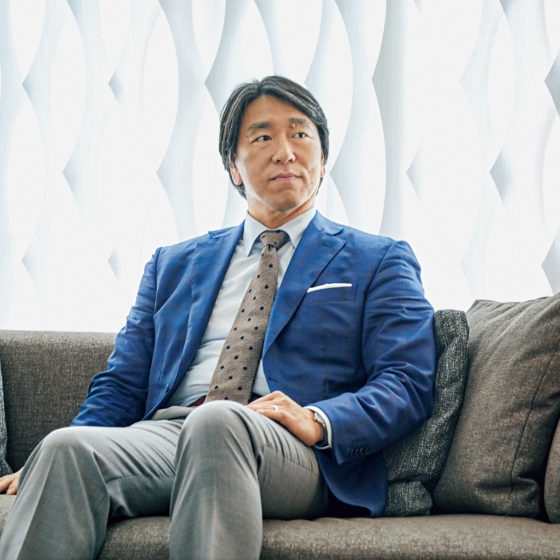- Naomi Kawase has become a world-famous film director after winning the Grand Prix at the 2007 Cannes Film Festival and subsequently being selected as a judge at the festival. She was in “The Capitol Hotel Tokyu” before the national release of her latest film, “Comes Morning” this spring. We asked her about the secret of her creation as she continues to make movies that touches the hearts of people around the world.
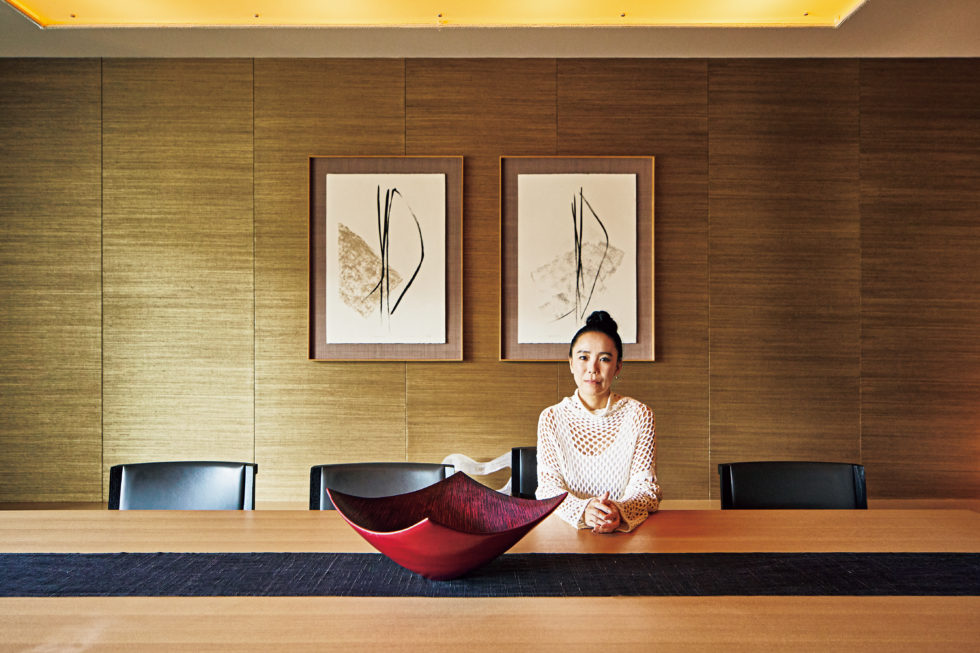
- I value my daily life very much. Since a hotel is a little different from my daily life, it is important how friendly they are and how much they treat me as family. In that sense, I am looking forward to staying at this hotel. When I came here yesterday, it was very beautiful to see the Japanese witch hazel, a spring flower, in the light. I always have seasonal flowers at home. My entrance, living room, and alcove are all like botanical gardens (laughs).
- I still live in my hometown, Nara City, where I was born and raised. In the city, there is an abandoned farmland nearby, so we rent it and have rice paddies. I make my own rice. That kind of everyday life supports my filmmaking. After all, you are expressing yourself with your film. I think it is important as a filmmaker how to live a daily life.
To delve into myself is to know what a human being is
- I started making films because of basketball. From junior high school to the third year of high school, I put all my heart and soul into it. I was all about basketball whether I was asleep or awake. I could not hold back my tears at the last match of my high school years in the frustration that I could not stop the passing of every moment. So it was a miracle that I found filmmaking, which can capture the “moment”. In order to work on documentary films, I studied in the film department of a visual arts college and captured the city of Osaka with an 8-mm film camera. I was shocked that with the camera I was able to reproduce the moments that I would otherwise never see again as if I had a time machine.
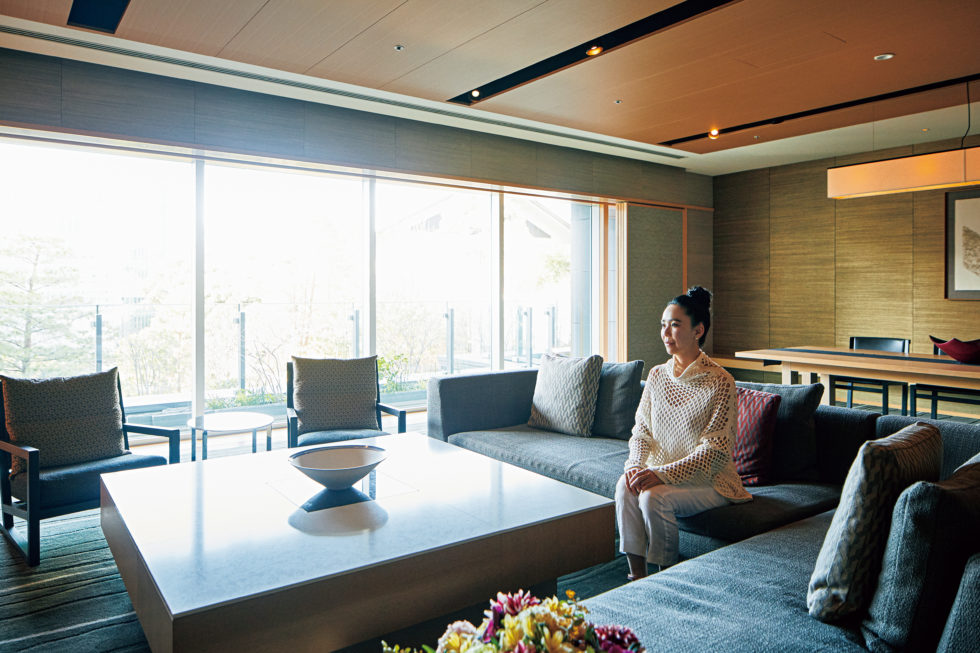
- My parents divorced when I was young and I was raised as an adopted daughter of my maternal aunt and her husband. Where did I come from? What was I born for? To know myself in the midst of such thoughts and to delve into myself is also to find out what it means to be human. For me, filmmaking was the means to pursue it.
- Usually when I say that “I don’t know my father”, my friends just say “Oh, okay”, but when they watched “Embracing”, the documentary about looking for my father, they started to talk about themselves, their families, and their lives in depth, which deepened our conversations. That’s when I knew filmmaking was my lifework.
- Now, 30 years later, at the age of 50, I was offered to be the official film director for the Tokyo 2020 Olympic Games. Before I started filmmaking, I was an athlete who knew nothing other than basketball. I feel that it is my destiny and I have been making films for this moment. Athletes who dedicate their soul and body to sports and aim for heights are really beautiful. In this occasion, I would like to present not just a record, but also a point of view that shares the joy of living through sports.
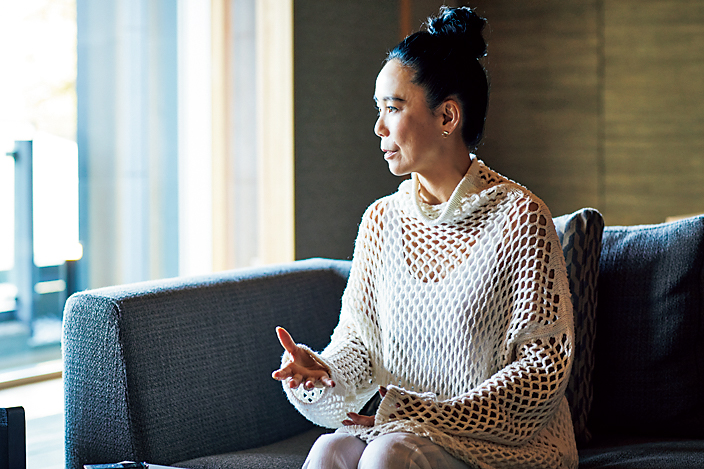
Winning Cannes Grand Prix while raising children and caring for foster mother
- I have been making films for a long time, but there was a time when I reduced the amount of work in order to concentrate on raising my child. When he was two years old, I suddenly wanted to make films again, so I started writing a script. At that time, I had not only a 2-year-old child, but also a 92 year-old foster mother with dementia. It was hard enough to take care of my foster mother and raise a child, but I was also making a film. I just could not control the creative desire that grew inside me. So I wanted to make an environment where I could do it myself. I also decided to produce it myself. I looked for investors not only in Japan, but I also went to negotiate with a French production company that has been supporting my films for a long time. Raising a child requires creativity. Even if there is a social rule that tells you to act in a certain way, there is no way that a baby would follow that rule. I had to figure out how to respond to the situation each time. Through that experience, I think I learned something that I could apply to my work. I was able to get support from the staff by creating a story while reducing the number of night scenes as much as possible in the scriptwriting stage and informing them about my situation beforehand. I left my son at a preschool in the morning and then went to the set with my foster mother. I had my foster mother perform as a resident of a care house. The finished film “The Mourning Forest” won the Grand Prix at the Cannes Film Festival.
Creating new common sense while breaking the old one
- 6 years ago, when I was a judge and Mr. Spielberg was the chairman of the judging committee of the Cannes Film Festival, he told me “Let’s stay HUNGRY forever”. I was really impressed that the legendary director made it his duty to stay HUNGRY, and I wanted to be like him. That is probably why I continue to live in Nara. I think I need time to dig deep into my creativity in a quiet place away from the city, without being swayed by people or information.
- In fact, the final tweaks of the new film “Comes Morning”, which will be released early this summer, just finished yesterday. The process of making it was a real struggle. This time, we are taking on a challenge that has never been seen before in filmmaking. The actors lived and got used to the environment in 6 locations throughout Japan, and we filmed for over 100 hours. Cutting it down to two and a half hours was a series of tough decisions. But I managed to finish it, feeling like I was going back to the basics just like the first time I started filmmaking. This film is about how one person connects with another, a theme that I have always been pursuing. This time we covered the topic of special adoption, but that is just the beginning. People can find their own happiness in a new sense of values even if they are not related by blood or have different cultures. I think it is a film that you can enjoy from any perspective, no matter your gender or whether you have children or not. With a message that a family can be built anew, I hope my film to be a ray of hope for someone. Common sense can be created anew. With that in mind, I will continue to make films.
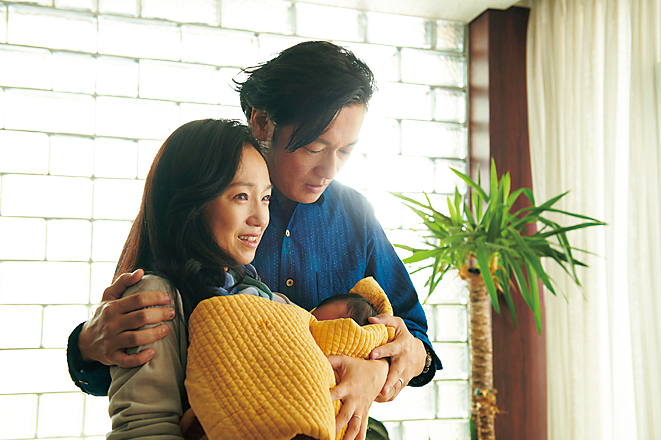
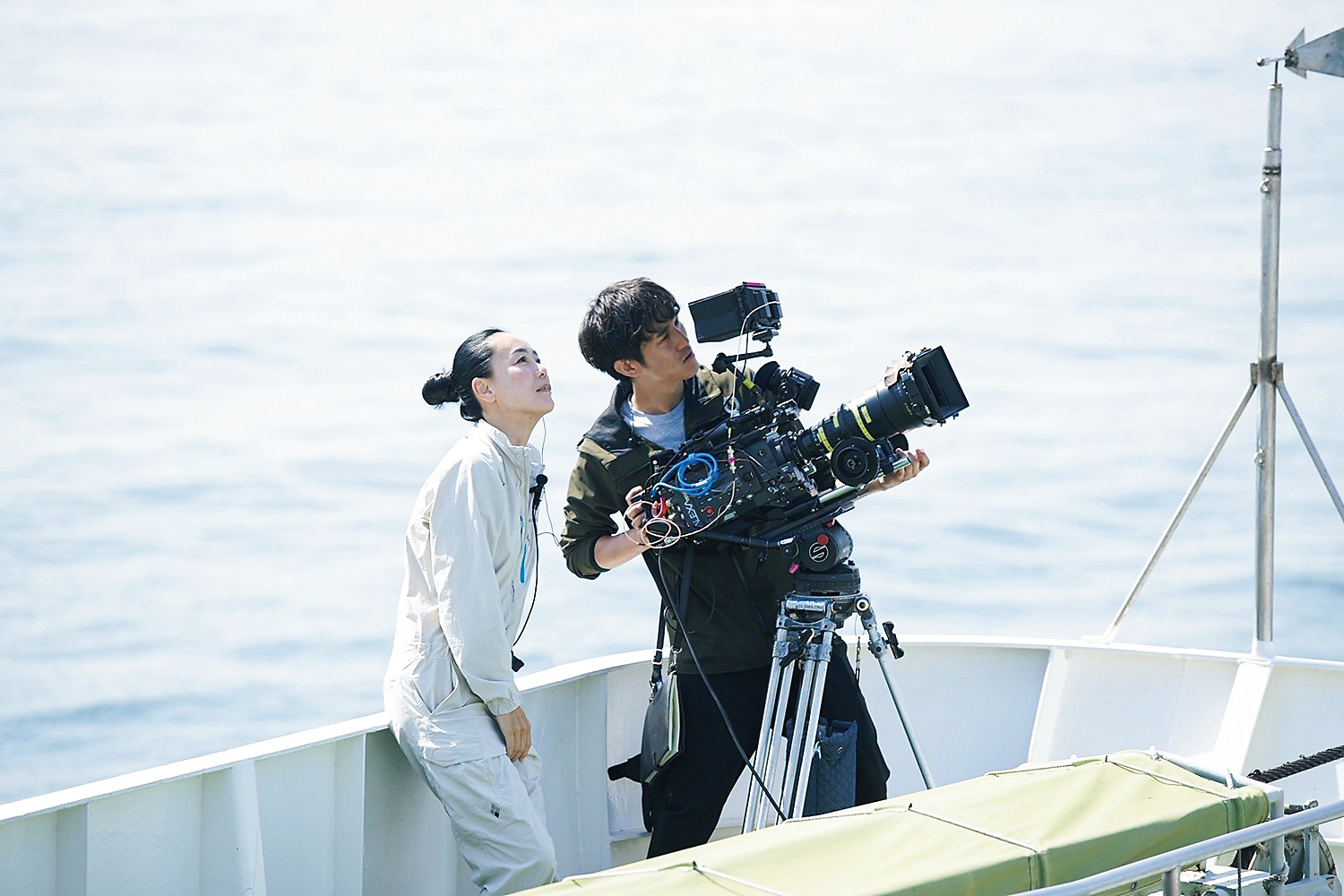
- Styling=Kosei Matsuda(SIGNO)
Hair&Make-up=Yoko Kizu



